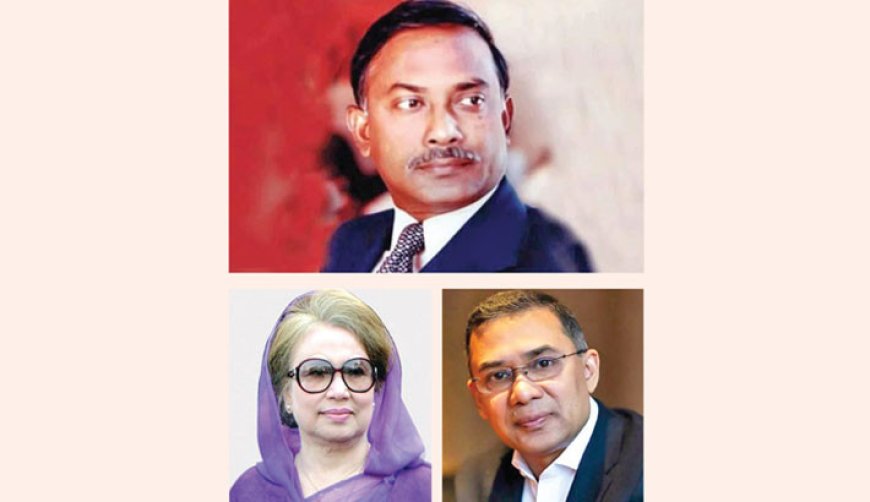BNP’s Relentless Struggle for Democracy: From Zia to Khaleda to Tarique
BNP’s Relentless Struggle for Democracy: From Zia to Khaleda to Tarique

The Bangladesh Nationalist Party (BNP), founded by martyred President Ziaur Rahman—the leader who introduced multi-party democracy in Bangladesh—has long positioned itself as a defender of democracy and people’s rights. Today, under the leadership of his elder son and acting chairman, Tarique Rahman, the party continues this struggle.
The BNP’s story begins with Major Ziaur Rahman, who revolted against the Pakistani occupation forces on 25 March 1971 and declared Bangladesh’s independence the following day from Kalurghat Radio Station in Chattogram. On 1 September 1978, he formally established the BNP, rooted in Bangladeshi nationalism. His 19-point programme sought to institutionalise democracy, strengthen national unity, and build a self-reliant nation. By abolishing the one-party BAKSAL system, restoring press freedom, lifting bans on political parties, and winning a sweeping majority in the 1979 election, Zia laid the foundations of a functioning democracy.
After his assassination, leadership passed to his widow, Khaleda Zia. She became the face of resistance to HM Ershad’s autocratic regime, enduring arrests and imprisonment seven times between 1983 and 1990. In 1991, she became Bangladesh’s first female prime minister after leading her party to victory in a free and fair election that restored parliamentary democracy. Over the next decades, she faced relentless persecution—from forced eviction, house arrest, and imprisonment on fabricated charges, to personal tragedies including the death of her younger son, Arafat Rahman Koko. Despite this, she never compromised her political principles, even refusing exile when offered in exchange for freedom.
Since Khaleda’s imprisonment, leadership has shifted to Tarique Rahman, who has guided the party from exile for nearly 15 years. Despite a ban on broadcasting his speeches in Bangladesh, over a hundred politically motivated cases, and his inability to return home even during his mother’s illness and brother’s death, Tarique kept the BNP’s movement alive. He played a decisive role in the anti-quota protests that sparked the mass uprising of 2024, and earlier in shaping the BNP’s 10-point programme in 2022 and the single-point demand for Sheikh Hasina’s resignation in 2023. Under his direction, BNP built alliances with more than 40 parties, boycotted the rigged 12th parliamentary election, and mobilised nationwide resistance.
Through decades of activism, the BNP has suffered immense repression—thousands jailed, disappeared, or killed, and more than 50,000 members facing fabricated charges. Yet its base has remained remarkably united, refusing to fracture under pressure. The party has consistently risen “from the ashes” like a phoenix, reaffirming its place in the hearts of millions.
Today, as Bangladesh heads toward the February 2026 general election, the BNP again stands at a crossroads. Internal debates over electoral systems and external conspiracies to delay or derail the polls have cast uncertainty over the democratic transition. Still, the BNP insists on one goal: a free, fair, and credible election to return the country to true parliamentary democracy.
For nearly five decades, the family of Ziaur Rahman—Zia, Khaleda, and Tarique—has borne the heaviest cost of authoritarian repression. Their story is one of resilience, sacrifice, and an unending fight for democracy and the rights of the Bangladeshi people.
What's Your Reaction?




















































































